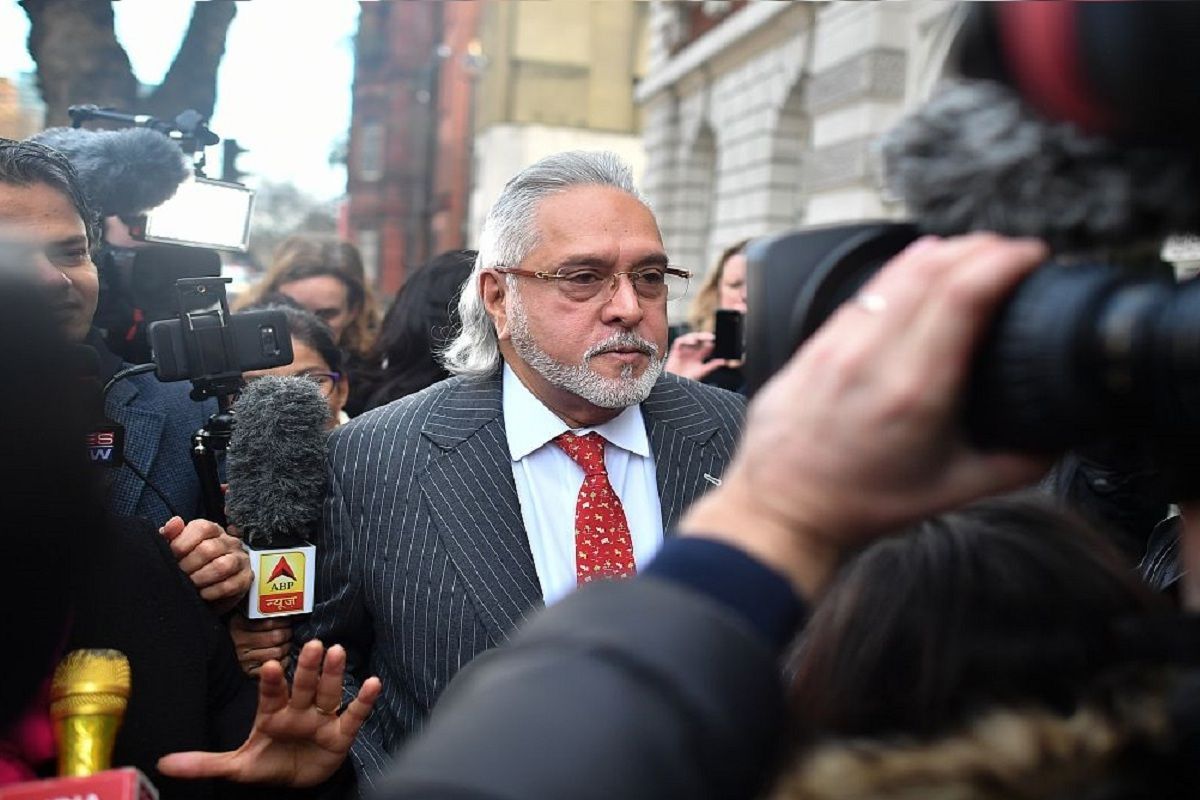Coal scam case: Next hearing on 10 Dec
The charge framing is once again deferred in the high profile coal scam case in CBI Special Court in Asansol today as one of the main accused Bikash Mishra was not present in the court.
A CBI officer said the investigating agencies are aware of the possibility that Mallya, being a former Rajya Sabha Member, could seek political asylum in the UK.

Vijay Mallya is wanted in India on fraud and money laundering charges amounting to an estimated Rs 9,000 crore. (File Photo: AFP)
After reports started floating that Indian fugitive business tycoon Vijay Mallya could be extradited to India anytime soon, it has emerged that there is a “legal hurdle yet to be resolved”.
With a pending legal issue remaining unresolved, liquor baron and founder of the now defunct Kingfisher Airlines, Vijay Mallya, may escape his extradition to India for some more time. He remains out on bail in England.
The spokesperson for British High Commission in India has informed that although Mallya last month lost his appeal against extradition and was refused leave to appeal further to the UK Supreme Court, there is a further legal issue that needs resolving before his extradition can be arranged.
Advertisement
Under UK law, extradition cannot take place until legal issue resolved, the official said while adding that the issue is “confidential”. “We can’t estimate how long this issue will take to resolve. We are seeking to deal with this as quickly as possible,” the official was quoted as saying by ANI.
Sources in London said Mallya was likely to use all his heft to thwart the extradition process.
“Mallya is going to exploit all legal remedies. First the official order has to come out and Indian Mission has to be informed,” a top CBI officer was quoted as saying by IANS.
The officer said the investigating agencies are aware of the possibility that Mallya, being a former Rajya Sabha Member, could seek political asylum in the UK. They said they had information to this effect.
Another CBI source said on Thursday that Mallya’s extradition would take time as “formal extradition order in this regard has not been issued” by the United Kingdom. Further, there is a legal option for the fugitive liquor baron to exploit.
The deadline for the UK Home Office Secretary to sign extradition documents in order to sent Vijay Mallya expires on June 11, 2020, as per the Extradition Act.
As per UK’s Extradition Act, an individual has to be extradited with 28 days of an order by a high court or Supreme Court. However, if the individual had made an asylum claim, which refers to an appeal to stay in the UK as a refugee, the extradition cannot be done unless the claim is settled.
India has been in touch with the British government over extradition of fugitive liquor baron Vijay Mallya after he exhausted legal options against New Delhi’s request to the UK to extradite him.
“The government of India is in touch with the UK regarding the next steps in his extradition process,” External Affairs Ministry Spokesperson Anurag Srivastava said.
Mallya lost his appeals in the UK Supreme Court against his extradition to India to face money laundering and fraud charges.
On May 14, the UK High Court rejected Mallya’s plea seeking permission to file an appeal in the Supreme Court in London.
However, the final extradition order copy pertaining to this has “not been issued”, said a top CBI officer heading the agency probe in the fraud case against Mallya.
“Vijay Mallya’s extradition is not happening now. Once the UK government takes necessary steps, we will look into it and inform everyone,” said a top CBI officer.
According to reports, currently no CBI investigating team is in the UK. The case is being handled by a Special Investigation Team headed Joint Director Manoj Shashidhar.
The liquor baron has lived in the UK since he fled India on March 2, 2016.
Under the new Fugitive Economic Offenders Act, Mallya is the first accused in India to be booked. In 2019, a Mumbai court named Mallya as an offender under the Act, empowering probing agencies to seize his properties and assets the world over.
Mallya’s Kingfisher Airlines Ltd, is under investigation by the Enforcement Directorate (ED), Central Bureau of Investigation (CBI), Serious Fraud Investigation Office (SFIO), and Securities and Exchange Board of India (Sebi) for loan defaults of over Rs 9,000 crore to a consortium of Indian banks led by the State Bank of India (SBI).
Advertisement